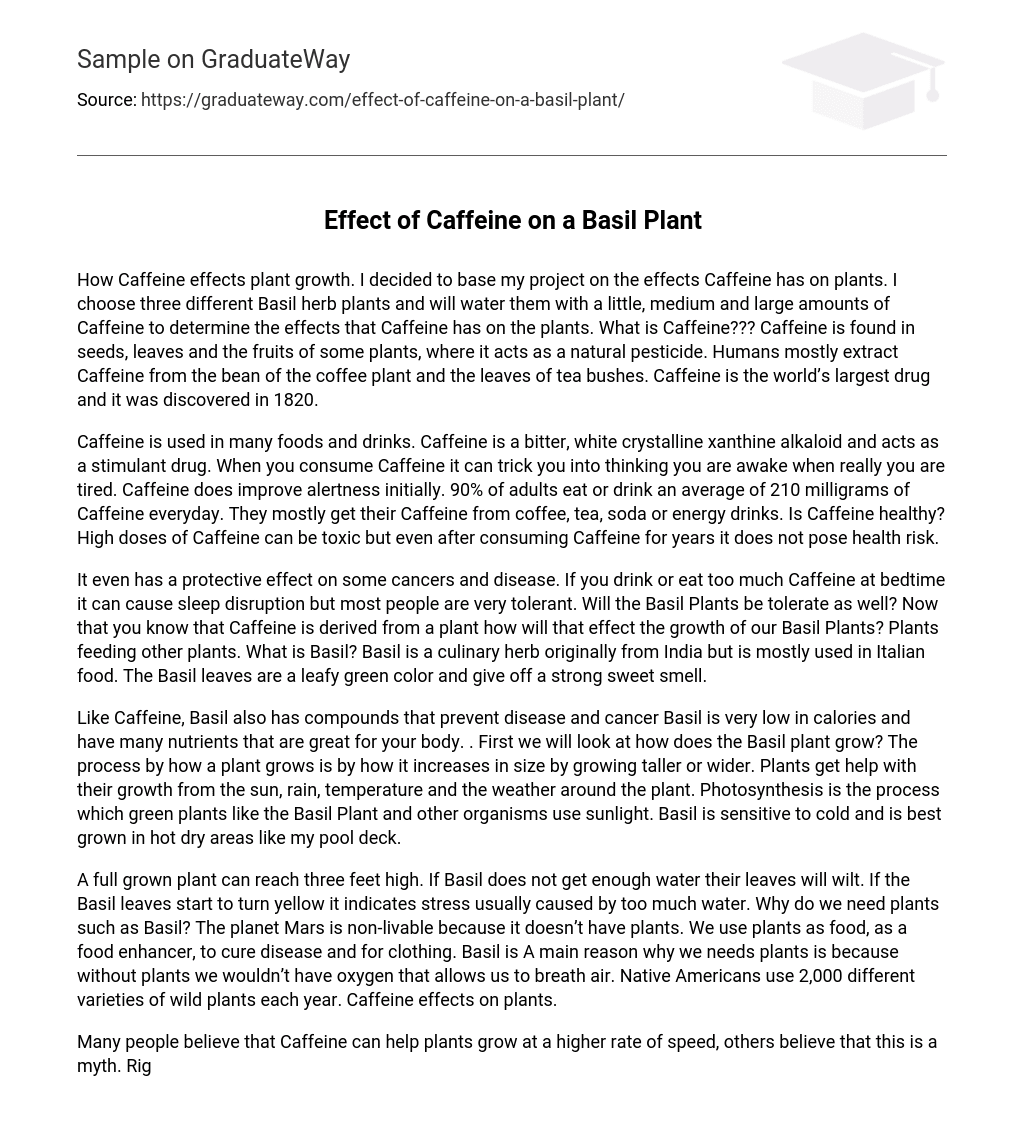The study will investigate the effect of Caffeine on plant growth by irrigating three Basil herb plants with different quantities of Caffeine. Caffeine is a natural pesticide found in seeds, leaves, and fruits of specific plants. Humans usually extract Caffeine from coffee beans and tea leaves. Since its discovery in 1820, Caffeine has become the most widely consumed drug globally.
Caffeine is a bitter and white crystalline xanthine alkaloid that can be found in various food and drink products. It acts as a stimulant drug, deceiving one into feeling awake even when tired. Initially, caffeine increases alertness. On average, coffee, tea, soda, or energy drinks provide approximately 210 milligrams of caffeine per day for about 90% of adults. In terms of health effects, while excessive amounts of caffeine can be toxic, regular consumption over time does not pose significant health risks.
Additionally, it provides protection against specific cancers and illnesses. Although consuming too much caffeine before going to bed can disrupt sleep patterns, most people have a high tolerance for it. But do basil plants have the same level of tolerance? Since caffeine comes from a plant, how will this affect the growth of our basil plants? Plants supporting other plants. So what is basil exactly? Basil, originating from India, is an herb used in Italian cuisine known for its vibrant green leaves and pleasantly strong aroma.
Basil, like Caffeine, contains compounds that prevent disease and cancer. Additionally, Basil is low in calories and rich in nutrients beneficial for the body. Now, let’s explore the growth process of the Basil plant. Plant growth involves an increase in size, either by growing taller or wider. The growth of plants relies on factors such as sunlight, rain, temperature, and weather conditions. Photosynthesis, the process which green plants like Basil utilize, harnesses sunlight. Basil plants are sensitive to cold and thrive best in hot dry regions, such as my pool deck.
A full grown plant can reach a height of three feet. Insufficient water causes Basil leaves to droop, while yellowing leaves indicate excessive watering and stress. Plants, including Basil, are essential for multiple reasons such as providing sustenance, enhancing flavors, offering medicinal benefits, and contributing to clothing production. Oxygen production by plants is vital for our breathing process. Mars lacks plants and therefore cannot support life. Native Americans utilize approximately 2,000 wild plant varieties annually. The impact of caffeine on plants.
The effectiveness of caffeine in promoting plant growth is currently a topic of debate, with no scientific evidence either supporting or refuting these claims. To investigate further, I will conduct an experiment using three basil plants. These plants will be placed closely together and exposed to the same amount of sunlight, weather conditions, and temperature. To ensure consistency, I will use pure caffeine powder mixed with distilled water in different amounts. The caffeine-water mixture will be applied to each plant every three days at the same time.





